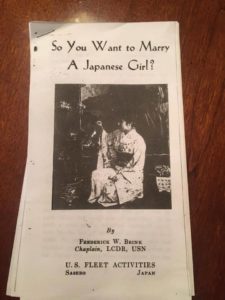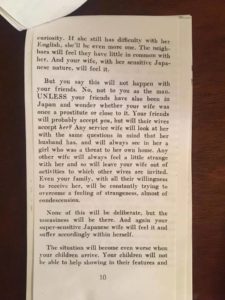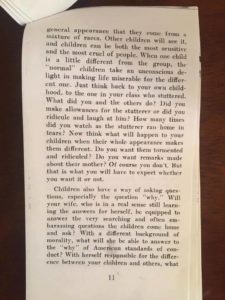About fifteen years ago, my grandpa wrote an e-mail to me, my siblings, and my cousins. He had recently learned how to scan pictures, and had sent us newspaper clippings of my Japanese grandma after she first arrived from Japan to the United States.

They met in Japan, just after World War II. It was illegal for American soldiers to marry Japanese women and bring them home (The Oriental Exclusion Act), so they met in secret. The had secret parties with other soldiers and Japense women. My grandpa was in Japan for eight months, and knowing his time there would come to an end, he resolved that if he got back to the States and couldn’t stop thinking about my grandma, he would find his way back to Japan.
And that he did: through Korea. He got back to Ohio, couldn’t stop thinking about her, needed a way to get back, so he re-enlisted. He asked to be sent to Japan, but was sent to Korea. To hear him tell it, he had dreams that she was on an island, floating away just out of his arm’s reach. He petitioned and petitioned and petitioned and eventually made it back to Japan: where they married on the spot, she in a wedding dress she made from the silk of a parachute she found.
They moved back to Cleveland. This is where things get a little more…muddled. They had four children. Four kids that looked, you know, half-Japanese in the sixties. What I don’t think people realize even though it happened in recent history, is that the Japanese were painted much the way Mexican and Muslim immigrants are being painted now. They were…stealing American jobs, terrorists here to rape American women and add a slanted-eye phenotype to Euro-genes. What I type here comes from first-hand stories of my grandparents, and while all their stories are amazing to me, one, in particular, stands out: and this is of my grandmother’s friend, who was actually place in a Japanese internment camp during World War II.
When my grandpa introduced me to my grandmother’s friend, I remember thinking about Japanese internment camps as an American anomaly…something that happened on a small-scale, for a short period of time. But as I heard her tell her story, I thought…why haven’t I learned more about this? Coming to terms with the fact that this was my history, this is the history of people who look like me in this country, that my family, my mother, my children would have been interned is…harrowing. And the fact that it is taught in schools as this thing that happened in passing kind of explains what’s happening now.
My grandpa is such an amazing man. I love him so much. I love my grandmother so much: I love everything she sacrificed, has taught us, the family she created. I love memories of her house, eating sushi she wrapped herself, mochi, yaki soba, my kimono, learning to write my name in Japanese. They are important to me, this history is important to me, and my children will grow up understanding this as their history, as what being an American means to them, specifically, as 3rd generation Asian Americans (even though they look White).
People don’t think about Japanese people as an oppressed group of people: and there’s a reason. The Japanese were paid reparations, and by and large the rhetoric around Japanese-Americans has changed. But, don’t be fooled: even though the stereotypes have flipped, thinking that “all Asians are good at math,” or “you’re beautiful because you’re exotic” is STILL harmful.

The last paragraph (that goes on to the next page) reads:
The situation will become even worse when your children arrive. your children will not able to help showing their features and general appearance that they came from a mixture of races. Other children will see it and children can be both most sensitive and most cruel of people. When one child is a little different from the group, the “normal” children tak an unconscious delight in making life miserable for the different one.

As a Japanese-American mother, with the history we have here, I am doing as much as I can to ensure my children know their history, and know it’s implications for how the same rhetoric that was used against us is being used against other people. Teaching my children this history isn’t a choice for me: it’s in the slight slant of my eyes, the shape of my face, the stories and memories that are linked to Japan and America and are embedded in me. The language being used around people of color and non-Christian religions right now has a specific familiarity to the internment and incarceration that Japanese-American people- people who looked like me- experienced after World War II.
If you’d like to educate your children, as well, this is a list of kid-friendly books about Japanese internment camps.
Here are some wonderful books about Japanese internment camps:
Baseball Saved Us, by Ken Mochizuki
A Place Where Sunflowers Grow, by Amy Lee-Tai
So Far from the Sea, by Eve Bunting
The Bracelet, by Yoshiko Uchida
The Journal of Ben Uchida, Citizen 13559, Mirror Lake Internment Camp, by Barry Denenber
Weedflower, by Cynthia Kadohata
Remembering Manzanar, by Michael L. Cooper
I am an American, by Jerry Stanley
The Invisible Thread, by Yoshiko Uchida
Dear Miss Breed: True Stories of the Japanese American Incarceration During World War II and a Librarian Who Made a Difference, by Joanne Oppenheim








